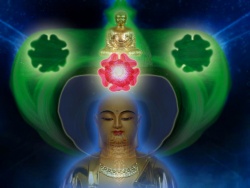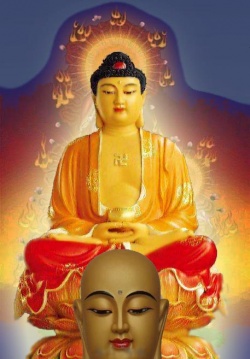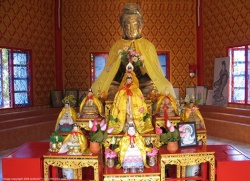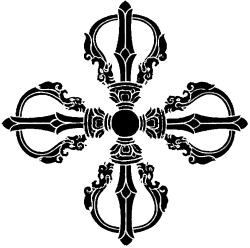The 31 Realms of Existence
Formless Spheres (Arupavacara)
31. The realm of Neither Perception nor Non-Perception (N’evasanna Nasannayatanabhumi) 84,000MK 30. The realm of Nothingness (Akincanayatanabhumi) 60,000MK 29. The realm of Infinite Consciousness (Vinnanacayatanabhumi) 40,000MK 28. The realm of Infinite Space (Akasanacayatanabhumi) 20,000MK
27. The Highest realm (Akanittha) Pure Abodes 4th Jhana 16,000MK 26. The Clear-sighted realm (Suddassa) 8,000MK 25. The Beautiful realm (Sudassi) 4,000MK 24. The Serene realm (Atappa) 2,000MK 23. The Durable realm (Aviha) 1,000MK 22. The realm mindless beings (Asannasatta) 500MK 21. The realm of Great Reward (Vehapphala) 500MK 20. The realm of Steady Aura (Subhakinna) 3th Jhana 64MK
19. The realm of Infinite Aura (Appamanasubha) 32MK 18. The realm of Minor Aura (Parittasubha) 16MK 17. The realm of Radiant Lustre (Abhassara) 2nd Jhana 8MK 16. The realm of Infinite Lustre (Appamanabha) 4MK 15. The realm of Minor Lustre (Parittabha) 2MK 14. The Maha Brahma realm (Mahabrahma) 1st Jhana 1AK 13. The realm of Brahma’s Ministers (Brahmapurohita) 0.5AK 12. The realm of Brahma’s retinue (Brahmaparisajja) 0.3AK
11. The realm of the gods who lord over the creation of others (Paranimmaitavasavatti) 16,000CY 10. The realm of the gods who rejoice in (their own) creations (Nimmanarati) 8,000CY 9. The Delightful realm (Tusita) 4,000CY 8. The realm of Yama gods (Yama) 2,000CY 7. The realm of the 33 gods (Tavatimsa) 1,000CY 6. The realm of the 4 Kings (Catummaharajika) 500CY 5. The Human realm (Manussa) No Limit 4. The host of Asuras (Asura) No Limit 3. Peta sphere (Peta) No Limit 2. Animal kingdom (Tiracchana) No Limit 1. Woeful state (Niraya) No Limit
MK = Maha Kappa, AK = Asankheyya Kappa, CY = Celestial Year
There are 3 kinds of kappas - namely, antara kappa, asankheyya kappa, and maha kappa.
The interim period when the age limit of human beings arises from ten to an indefinite time and then falls to ten again, is known as an antara kappa.
Twenty such antara kappa equal one asankheyya kappa, literally - an incalculable cycle.
Four asankheyya kappas equal one maha kappa.
Books state that 50 human years equal one celestial day.
The age-limit of gods of the realm of Four Kings is 500 celestial years, that is, according to human cycle reckoning 9,000,000.
Destruction of the Universe by Fire, Wind and Water
Cycle of Destruction
Fire (F), Water (W) and Wind F F F F F F F W F F F F F F F W F F F F F F F W F F F F F F F W F F F F F F F W F F F F F F F W F F F F F F F W F F F F F F F Wind
Buddhism states that there are four modes of birth - namely :
egg-bornm beings (andaja)
womb-born beings (jalabuja)
moisture-born beings (samsedaja)
beings having spontaneous births (opapatika)
This broad classification embraces the 4 modes of birth of all living beings.
Birds and oviparous snakes belong to the first division.
The womb-born creatures comprise all human beings,
some devas inhabiting the earth,
and some animals that take conception in a mother’s womb.
Embryos, using moisture as nidus for their growth,
like certain lowly forms of animal life, belong to the third class.
Beings having a spontaneous birth are generally invisible to the physical eye.
Conditioned by their past Kamma, they appear spontaneously, without passing through an embryonic stage.
Petas and Devas normally, and Brahmas belong to this class.




